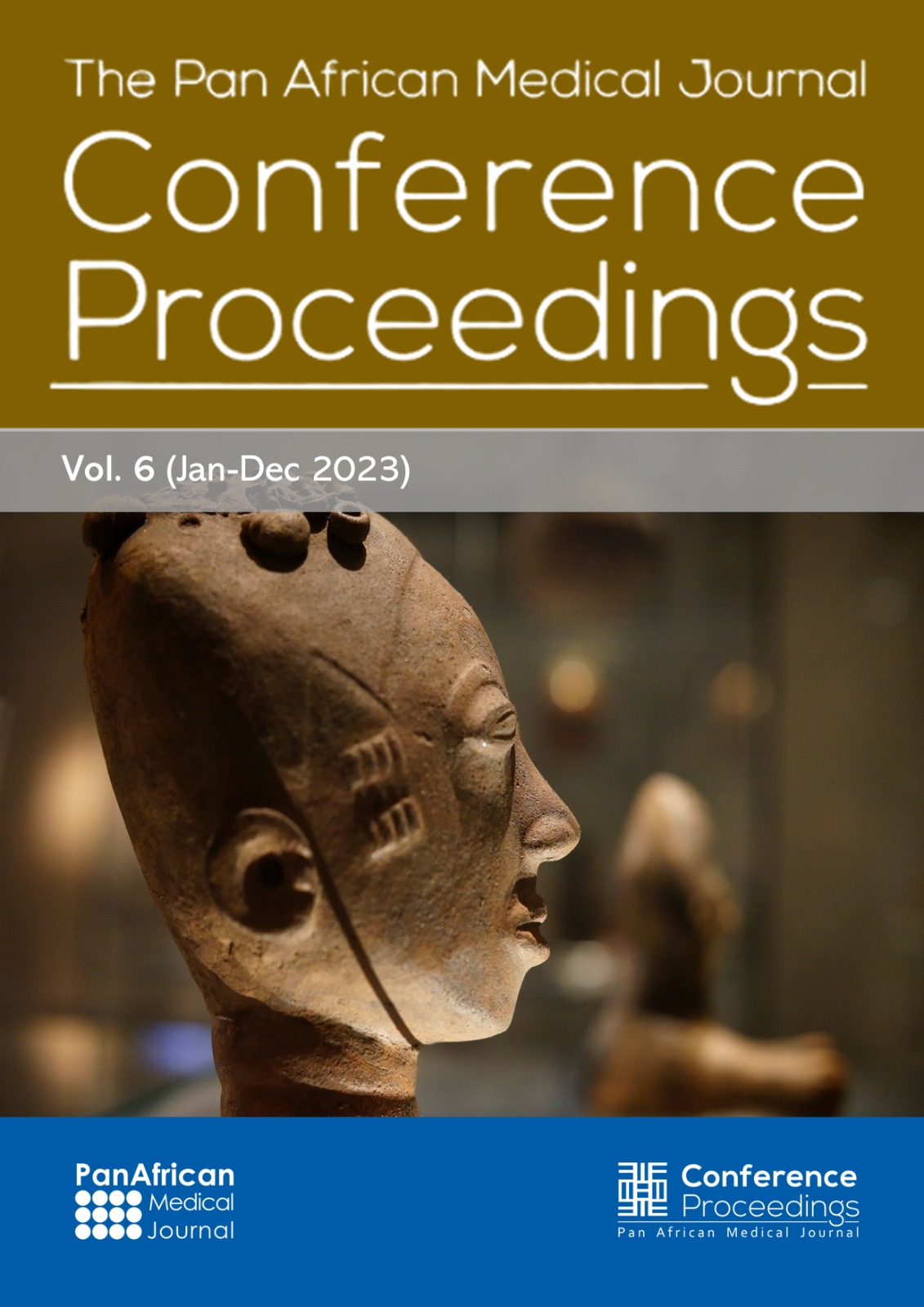Conference abstract
The one health approach creates progress towards elimination of rabies in Côte d’Ivoire
Pan African Medical Journal - Conference Proceedings. 2019:10(24).10
Jun 2019.
doi: 10.11604/pamj-cp.2019.10.24.828
Archived on: 10 Jun 2019
Contact the corresponding author
Keywords: Rabies, One Health, SARE, Cote d’Ivoire
Poster
The one health approach creates progress towards elimination of rabies in C�te d'Ivoire
Vessaly Kallo1,2,3, Mathilde Tetchi4,&, Marcel Boka3, Komissiri Dagnogo3, Godfrey Mbaruku1,5, Prisca Ndour2, Baba Alambedji2, Monique Lechenne1,6,7, Ayayi Akakpo1,2, Jacob Zinsstag6, Bassirou Bonfoh1,7
1Afrique One ASPIRE, Ivory Coast, 2Ecole Inter-Etats des Sciences et M�decine V�t�rinaires (EISMV) de Dakar, Senegal, 3Direction des Services Veterinaires, Minist�re des Ressources Animales et Halieutiques, Abidjan, Cote d�Ivoire, 4Institut National de l�Hygiene Publique, Abidjan, Cote d�Ivoire, 5Ifakara Health Institute (IHI), Tanzania, 6Swiss Tropical and Public Health Institute, Switzerland, 7Centre Suisse de Recherches Scientifiques en C�te d�Ivoire
&Corresponding author
Mathilde Tetchi, Institut National de l�Hygiene Publique, Abidjan, Cote d�Ivoire
Introduction: according to the World Health Organization (WHO), rabies is a major zoonosis, and a person dies of rabies every 9 minutes in the world. This is the sad record still observed today. Every year, rabies kills nearly 59,000 people, mostly children in developing countries. In Cote d'Ivoire, rabies is endemic, kills an average of 18 people per year and more than 10,000 people are victims of bite per year, despite the possibility of vaccination both in humans and animals. Since January 2017, rabies has been prioritized by all sectors involved in Public Health. It has been necessary to develop a national integrated rabies control strategy to achieve the global goal of zero human cases of rabies by 2030.
Methods: during these three years (2016 - 2018), a transdisciplinary approach was conducted throughout the study. The goal was to establish a multisectoral and multidisciplinary research group to identify rabies sites: (i) establish local rabies control committees; (ii) to know the level of the Ivory Coast using the Stepwise Approach to Rabies Elimination (SARE) tool; (iii) implement local awareness campaign, training of local actors; (iv) implement a post-exposure prophylaxis protocol intradermally; (v) to develop an integrated plan for rabies control in Cote d'Ivoire.
Results: this transdisciplinary approach has made it possible to estimate (i) the canine population of Cote d'Ivoire as 1,500,000 dogs in households; (ii) the bite rate in households as 2/1000 inhabitants; (iii) identify risk factors for bite. Following sensitization, vaccination compliance by bite victims has reached 70%. Cote d'Ivoire has developed and validated an integrated programme for the fight against rabies. In addition, the second assessment of Cote d'Ivoire by SARE tool in Mali 2018 found that Cote d'Ivoire has moved from level 1 to level 2.4.
Conclusion: in less than 3 years, the One Health approach has allowed Cote d'Ivoire to progress from level 1 to level 3 of the Stepwise Approach to Rabies Elimination.








